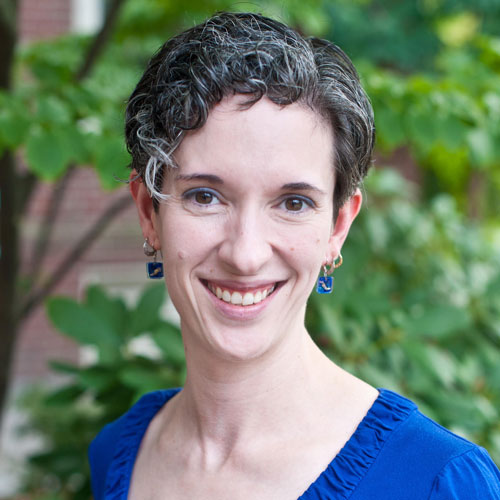Theresa Desrochers, PhD is Assistant Professor of Neuroscience and of Psychiatry and Human Behavior at Brown University. Dr. Desrochers joined Brown and BIBS in September 2016.
Tell us a little about yourself. Where are you from? When and why did you become interested in science?
I was born in Massachusetts and grew up in New Hampshire. Since watching animal nature shows as a child and growing crystals out of sugar and tromping around in the woods in the 4th grade, I have always had an intense curiosity about the natural world and complex behavior within it. I knew I wanted to study neuroscience when I went to a college fair in high school and picked up a brochure describing it as a major; here was a topic that seemed to combine everything that I loved: psychology, biology, chemistry, and what was fledgling then but common now: computation. I looked for an undergraduate institution where I could major in neuroscience (NYU was one of the few at the time) and set off on the path that led here.
What research does your lab do?
My lab studies how we perform and control “abstract” sequences. By abstract I mean sequences like making a cup of coffee. Unlike playing the piano, which I would call a motor sequence, making a cup of coffee has a series of steps that you have to complete in the correct order, but it is not dependent on an exact series of muscle movements. If someone puts the beans or the sugar in a different place, you can still (thankfully) make a cup of coffee just fine. We use human and animal models to study how areas in the brain such as the frontal cortex and the basal ganglia interact to learn and control abstract sequences.
Why did you chose to come to Brown?
In short, Brown is an amazing place. It is unique in that there are amazing scientists here and it’s large enough to have at least one person specializing in just about anything you would want to know about, and yet still incredibly collaborative and collegial. BIBS plays a large role in accomplishing this atmosphere by fostering interaction across departments and disciplines, which my own research has benefited greatly by.
What do you like to do other than research?
I studied dance when I was a child and in high school started studying the martial arts, karate specifically. I still study karate, and it is probably not a coincidence that there are many sequences of movements that one needs to master in the martial arts. My other passion is my family. My son and my daughter are wonderful, learning sponges and provide excellent motivation to do a little of all the other things I used to be able to do much more frequently such as rock climbing, hiking, and reading.
What advice do you have for the next generation of brain scientists?
Follow your passion. Science is full of ups and downs and if you aren’t passionate and truly curious about what you are doing then it can be hard to get through the disappointing times. Seek mentors that will help give you perspective, even if it’s someone who’s not traditionally thought of as a mentor. And try. You won’t know if you will get into that school or get that job or that grant unless you try. Too many wonderful scientists or scientists-to-be give up before they have even started.
